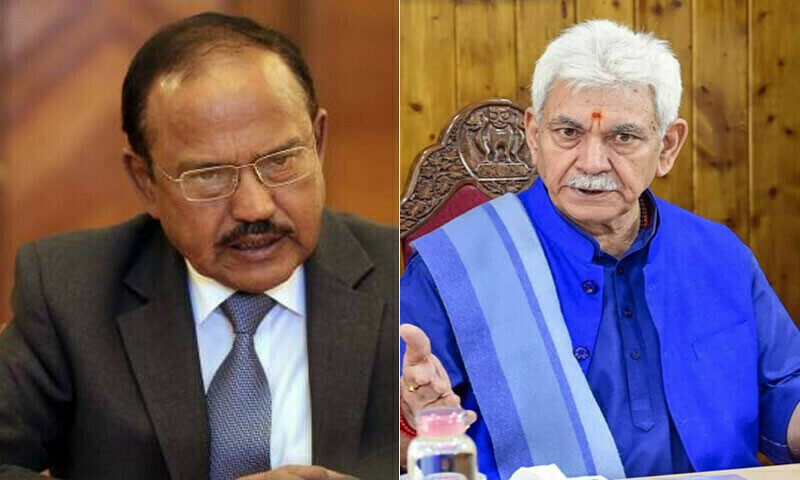LG Manoj Sinha admits security failure in Pahalgam attack, exposes Modi govt’s claims
The Indian government’s narrative around the recent Pahalgam attack in occupied Kashmir has come under intense scrutiny after a candid admission by the region’s Lieutenant Governor, Manoj Sinha.
In an interview with The Times of India, Sinha conceded that the attack was the direct result of a failure by security forces to prevent or intercept the assailants.
His acknowledgment has sparked a political firestorm, with opposition parties including Congress and the National Conference demanding his resignation. A Congress spokesperson asserted that genuine democracy requires the Modi government to accept responsibility, issue a public apology, and remove Sinha from his post.
National Conference leaders also accused Sinha of endangering the lives, dignity, and livelihoods of Kashmiris through his incompetence. Calls for legal action have been mounting after 26 fatalities were reported in the incident.
According to The Wire, the Modi administration has failed to provide credible evidence internationally to support its claims of Pakistan’s involvement, further fueling skepticism about the official account.
Sinha’s admission also directly contradicts longstanding assertions by Indian authorities that terrorists do not target tourists.
The attack has drawn criticism from Indian military officials, civil society, and political leaders, many of whom have described it as a “false flag” operation aimed at bolstering the BJP’s Hindutva agenda. Defense analysts argue the event was orchestrated to serve the government’s political interests rather than public security.
Meanwhile, India’s National Security Adviser Ajit Doval attempted to dismiss reports of losses during Operation Sandur, claiming in a speech at IIT Madras that no buildings were damaged. However, statements from senior Indian military officers have contradicted his remarks.
On May 11, Air Marshal A.K. Bharti, Director General of Air Operations, admitted that losses were inevitable during conflict. Later, on May 31, Chief of Defence Staff General Anil Chauhan revealed that Indian air operations were disrupted for two days after the operation.
Additional confirmations came from Indian Navy Captain Shiv Kumar and Deputy Army Chief Lieutenant General Rahul Singh, who acknowledged that Pakistan had full visibility of Indian Air Force movements.
Wing Commander Vyomika Singh reported that Indian forces suffered casualties and equipment losses at airbases in Udhampur, Pathankot, Adampur, and Bhuj.
These admissions collectively highlight the setbacks faced by Indian forces during Operation Baniyan Mursas, in contrast to Pakistan’s success in targeting key military installations in self-defense.
Analysts warn that Ajit Doval’s recent statements and the Modi government’s ongoing propaganda not only heighten regional tensions and inflame war hysteria but also undermine India’s democratic credibility.
Observers argue that the administration’s reliance on prejudice, Islamophobia, and aggressive rhetoric is a calculated effort to distract from governance failures an approach that threatens both regional stability and the integrity of India’s institutions.
For the latest news, follow us on Twitter @Aaj_Urdu. We are also on Facebook, Instagram and YouTube.
























Comments are closed on this story.